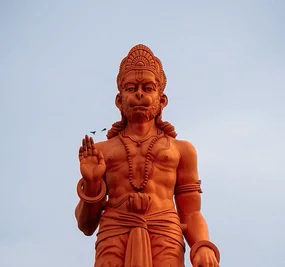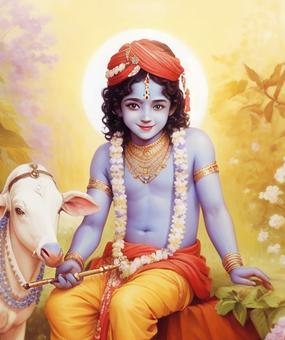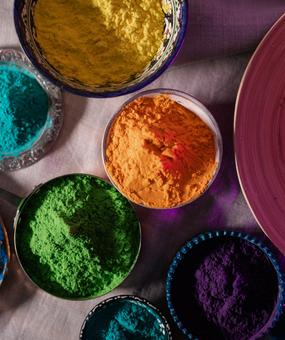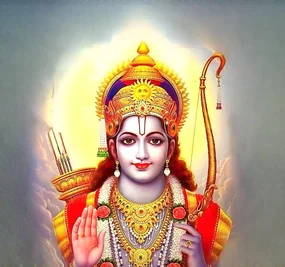Vasant Panchami or Basant Panchami marks the beginning of the transition period from winter to spring. After Makar Sankranti (January 14-15), the sun gradually starts its northward journey from the tropic of Capricorn as winter gradually fades away, leading to warmer days. A pleasant change in season heralds the arrival of spring, as the subcontinent heaves a sigh of relief from the severe winter. After this transition period of around 30 days, starting from Vasant Panchami, spring comes into full bloom around the time of Holi.
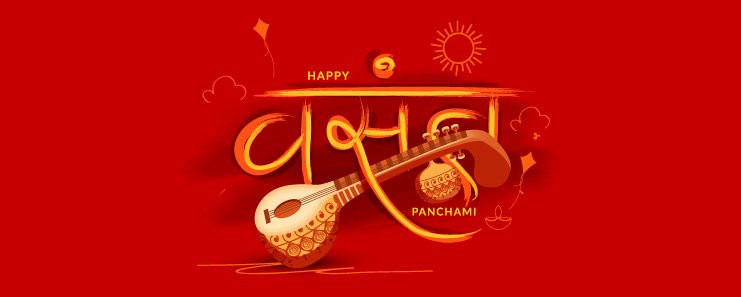
Vasant Panchami falls on the fifth day of the bright lunar fortnight (Sukla Paksha) of the month of Magha in the Indian lunisolar calendar. This corresponds to the months of January and February in the Gregorian calendar.
Association with Goddess Trinity
Vasant Panchami is of great significance in this land. In ancient times, Vasant Panchami was also the festival of the river Saraswati. In many parts of India, this festival is known as Saraswati puja, a day to propitiate Goddess Saraswati. Saraswati pujas are conducted in houses while the Saraswati temples are decorated and thronged by devotees. In south India, it is celebrated as Sri Panchami, Sri being one of the names of Goddess Lakshmi. Vasant Panchami is also the day when Goddess Parvati sent Kama Deva to disturb Lord Shiva’s penance. This festival of Vasant Panchami is thus associated with all the three goddesses in the Hindu trinity. In other words, it is a day that celebrates knowledge, prosperity, and creative energy.
Saraswati Connect
How is Vasant Panchami connected to the Saraswati river and Goddess Saraswati?
Let’s find out.
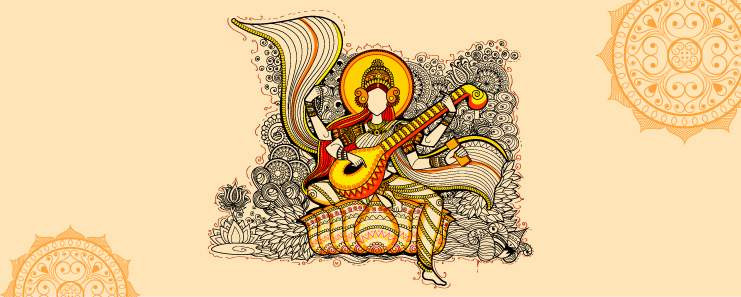
The Saraswati river was an ancient river in northwest India which dried up in the course of time. In those days, with the advent of spring, the Himalayan glaciers would melt, increasing the flow of the river Saraswati. The mustard plants that grew on the banks of the river used to go into full bloom, with the yellow color of mustard flowers decorating the banks of the river for many miles, making for a wonderful sight. It is interesting to note that the color yellow represents knowledge in the Indian tradition. It is the color of spring.
A day that Celebrates Knowledge
In ancient times, the rishis had their ashrams on the banks of the river Saraswati. Sage Veda Vyasa too had his dwelling here. It was on the banks of the Saraswati river that the Vedas, Upanishads, and other scriptures were composed and compiled. The river thus became associated with Goddess Saraswati, the deity of knowledge and wisdom.
On Vasant Panchami, Goddess Saraswati is draped in yellow, making her association with the festival and the river complete. People also dress in yellow and share yellow colored food items on this day. And, Vasant Panchami which is an occasion to worship Goddess Saraswati is a day to celebrate knowledge as in some traditions, children are initiated into education on this day.
February – a Short and Sweet Month
Saraswati is also the goddess who represents creativity. In ancient times, Vasant Panchami was the beginning of a month-long festival – Vasant Utsav which culminated in Holi. As we have seen, Vasant Panchami comes in February. This month February was considered apt for marriage. As per the legends, even the gods got married during this month. Shiva and Parvati had their wedding during this period.
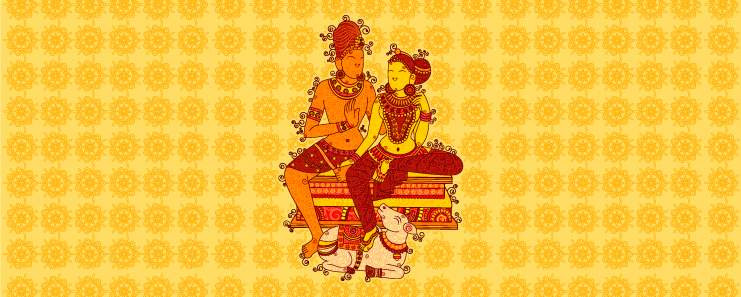
The legend of Vasant Panchami
Now let us briefly look at the popular legend associated with Vasant Panchami.
The story goes that Lord Shiva was once in deep penance. Tarakasura had attained a boon that only Shiva’s son would be able to put an end to his life. He began wreaking havoc all across the world emboldened by the fact that Shiva had become an ascetic immersed in meditation for a long period and it was unlikely that he would ever marry again after the self-immolation of Sati (Shiva’s first wife). Meanwhile, Sati had reincarnated as Parvati. Parvati had undertaken a severe penance to attain Lord Shiva. However, Shiva was unmoved. Parvati then sent Kama Deva (god of love) to rouse Shiva from his meditation. It was on Vasant Panchami day that Kama Deva approached Shiva and created an illusionary spring in Kailash to attract the Lord and bring him out of his penance. Shiva does eventually awaken but reduced Kama Deva to ashes. He then accepted Parvati as his spouse. The son born to Shiva and Parvati, Lord Kartikeya went on to annihilate Tarakasura.
Celebrations in different Regions
Apart from being a day that is observed as Saraswati Puja, Vasant Panchami is celebrated in different ways in different regions of India.
In Punjab, Vasant Ritu is celebrated as the festival of kites. People are dressed in yellow attire and eat yellow rice. Sikhs wear yellow turbans. In Maharashtra, married couples visit temples wearing yellow clothes on the first Vasant Panchami after their wedding. In Rajasthan, people wear jasmine garlands on this day. In Bihar, the ancient statue of the Deo sun deity was installed on Vasant Panchami. This statue of the Sun god is washed and decorated with celebrations that continue through the day.

Significance for Sufi Muslims
Vasant Panchami is also of great significance to the Sufi Muslims. As per some Sufi traditions, the revered Sufi poet Amir Khusrau of Delhi from the 13th century CE observed Hindu women carrying yellow flowers on Vasant Panchami. He then introduced this practice among the Sufis, which is practiced to this day by the Sufi Muslims of the Chishti order. Vasant Panchami is also the day when some Sufi Muslims mark the grave of the Sufi saint Nizamuddin Aulia in Delhi.
Like this, the festival of Vasant Panchami is observed in different ways in different parts of India, for different reasons. A day to celebrate love and wisdom.
Isn’t our cultural heritage fascinating? Equally intriguing is our tradition of healing and health. Thousands of years ago, our ancient sages unlocked techniques and wisdom to maintain holistic health. Know more about these secrets at The Art of Living’s Online Meditation and Breath Program.




